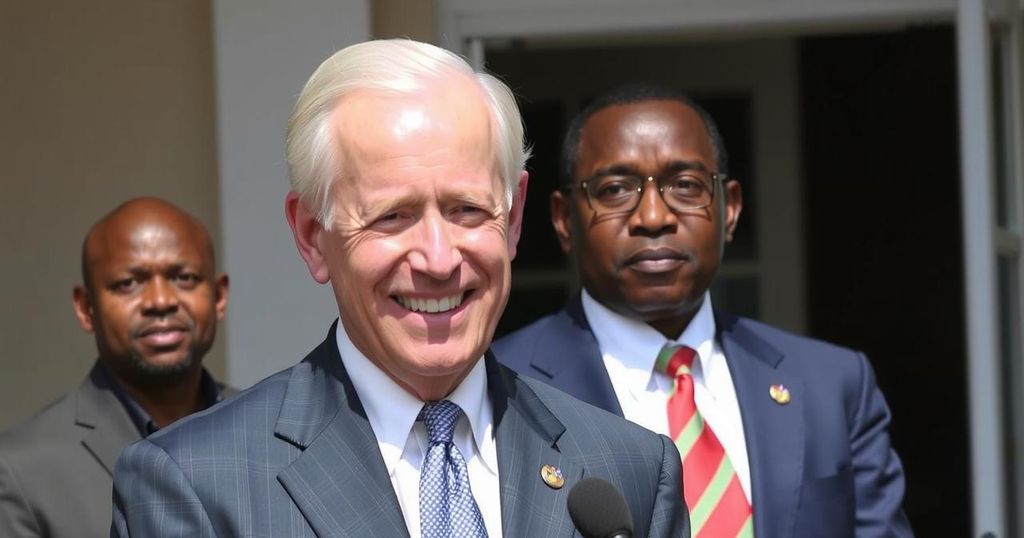Biden Strengthens U.S.-Angola Relations During Historic Visit

President Joe Biden made his first presidential visit to Angola, emphasizing the importance of U.S.-Angola relations. Addressing historical injustices related to slavery, he underscored a commitment to economic investment, announcing over $3 billion in U.S. projects and highlighting initiatives to combat corruption and promote democratic governance. The visit signifies a strong partnership focused on mutual growth and reconciliation.
On December 3, President Joe Biden embarked on his first presidential visit to Angola, emphasizing the importance of nurturing a robust bilateral relationship, while also addressing the painful legacy of slavery. Speaking at the National Museum of Slavery in Luanda, he underscored the historical connections between the two nations, acknowledging that both share a common, albeit difficult, past. Biden stated, “There’s nothing beyond our capacity if we work together,” stressing the potential for a united future.
Biden narrated the harrowing experiences of Angolans in the slave trade, revealing that many were transported to the British colonies, specifically Virginia, long before the United States was established. He described slavery as the United States’ “original sin” and highlighted the continuing struggles with racial injustices, echoing that the remembrance of these past atrocities is crucial to forming a more equitable future. He introduced descendants of Angola’s first enslaved individuals as he emphasized the necessity of confronting historical truths.
In discussions with Angolan President Joao Lourenco, Biden explored trade and investment opportunities, highlighting more than $3 billion in U.S. investments aimed at enhancing Angolan infrastructure and promoting economic development. The Lobito Trans-Africa Corridor was spotlighted as a means to foster quality job creation and improve living standards in Angola and the region. Biden articulated that the United States is deeply committed to Africa’s future, noting initiatives that support clean energy, health care, and entrepreneurship.
The president’s commitment extends to helping Angola combat corruption and uphold the rule of law, which is pivotal for sustainable development. This visit not only marks a strengthening of U.S.-Angola relations but also positions the United States as a dedicated partner in fostering African growth and democratic principles globally.
The relationship between the United States and Angola has historical roots that include the transatlantic slave trade, which saw many Angolans forcibly taken to the Americas. This visit by President Biden comes during a period when the United States is seeking to enhance its diplomatic ties and investments in Africa. The visit underscores America’s intentions to provide support in various sectors that are critical for development, including infrastructure, clean energy, and the strengthening of democratic institutions. The Lobito Trans-Africa Corridor is a significant project intended to boost economic connectivity across the continent, reflecting the United States’ strategic interests in Africa. Biden’s administration aims to cultivate stronger partnerships that align with American values of democracy and accountability, primarily through commercial investments and cooperative agreements.
President Biden’s inaugural visit to Angola symbolizes a renewed commitment to strengthening ties between the United States and Africa, recalling a shared yet tumultuous history while envisioning a collaborative future. Through substantial investments and diplomatic engagements, the U.S. aims to support Angola’s growth and historical reconciliation. Emphasizing the importance of remembrance and cooperation, Biden’s visit is a pivotal step in enhancing economic relations and underpinning efforts towards accountability and justice.
Original Source: www.upi.com








